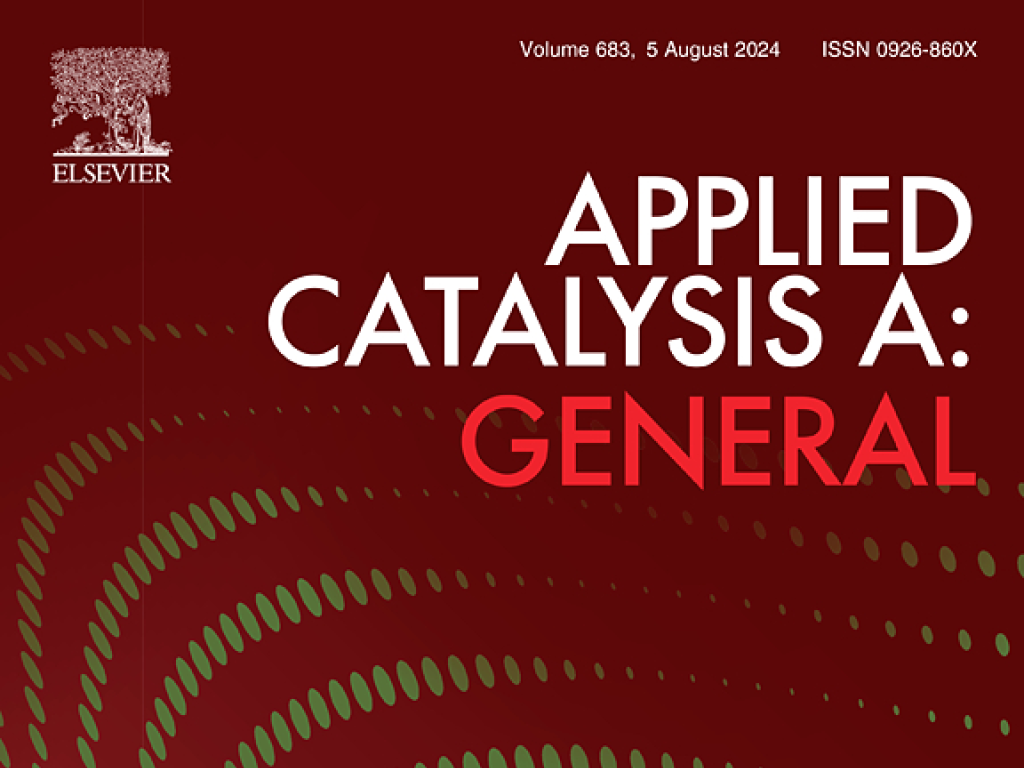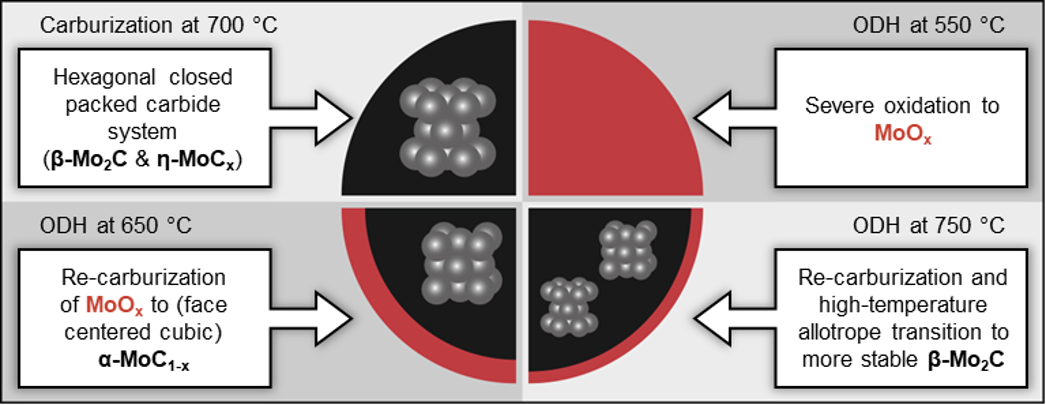Recent Paper Climbs to Top 10 Most Viewed Publications in 2023

The paper, authored by Dr Wijnand Marquart, Prof Michael Claeys, and Prof Nico Fischer, explores the potential of CO2-assisted oxidative dehydrogenation (ODH) as a more sustainable alternative for producing light olefins. Light olefins, such as ethylene, are fundamental building blocks in the chemical industry, and finding greener production methods is crucial for environmental sustainability.
The study investigates the effect of reaction temperature on the performance of silica-supported molybdenum carbide nanoparticles in the CO2-assisted ODH of ethane. The 3 highlights of the study are:
1. High Ethylene Selectivity: At all applied reaction temperatures, the developed catalysts achieved a maximum possible ethylene selectivity of 67 C-%, effectively suppressing the occurrence of side reactions.
2. Temperature Effect on Catalyst Performance: The study revealed that increasing reaction temperatures reduced the oxidation of the catalyst. Additionally, the increased reaction temperature caused a phase change effect involving various carbide allotropes. The mechanism transitions from β-Mo2C to MoOxCy/MoO2 to α-MoC1−x/β-Mo2C, suggesting an oxidation/re-carburisation process rather than outright prevention of oxidation. This insight is vital for understanding and controlling catalyst behaviour under reaction conditions.
3. Catalyst Deactivation: Despite the promising results, the study also revealed catalyst deactivation attributed to carbon formation on the catalyst's surface, which blocks active sites. This finding underscores the challenges that remain in developing durable catalysts for industrial applications.

For more details and to read the full paper, read more here.
